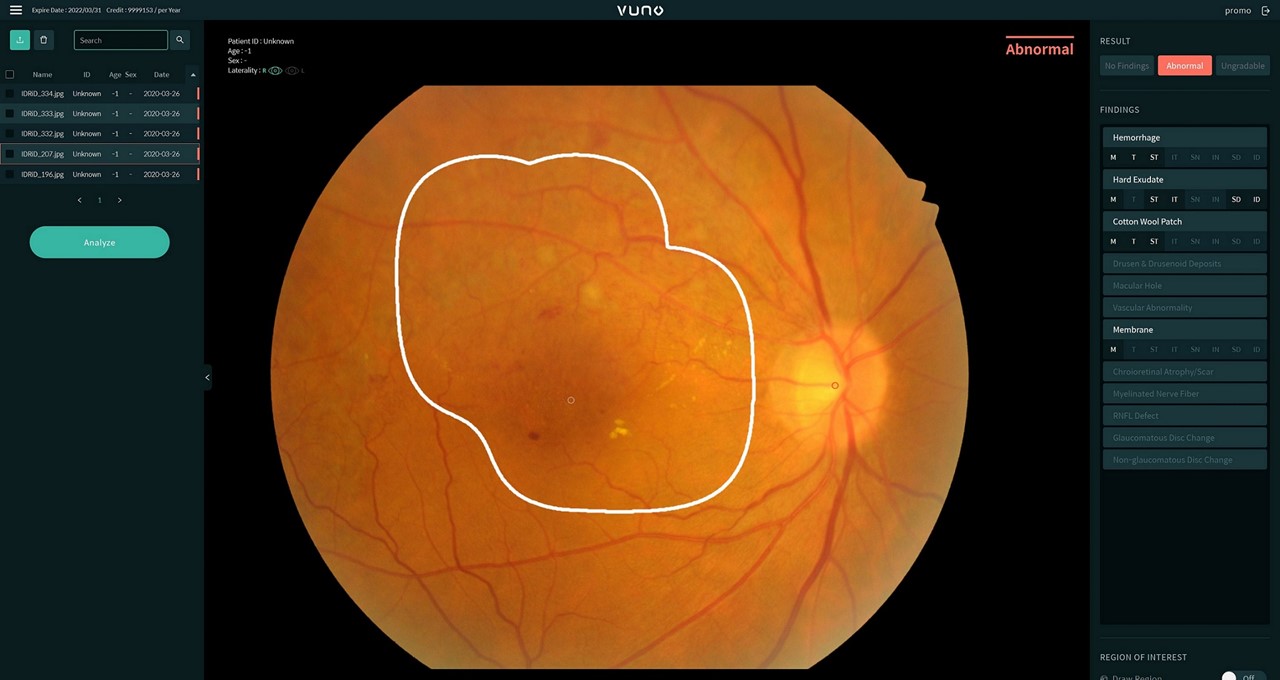Using AI to generate a speedier, more accurate diagnosis of a specific medical condition is a worthy and ambitious goal. But VUNO is aiming bigger.
The South Korea-based startup is building an extended family of NVIDIA GPU-powered AI products, each addressing diagnoses of different diseases.
The company’s AI algorithms are designed to capitalize on the growing pools of big data associated with a vast number of conditions. So far, VUNO has products that address bone age assessment, neurodegenerative disorders and diseases with signs visible on chest X-rays or CT scans. It also has a handful of products in development focused on eye abnormalities, among other areas.
“Speed is one of the most important factors in any medical imaging tool, yet we cannot afford to compromise accuracy,” said Kyu-Hwan Jung, cofounder and chief technology officer at VUNO. “Our solutions are designed to enhance not just reading time but the accuracy of medical diagnoses, ultimately freeing up doctors to focus on providing quality patient care.”
Jung said that VUNO’s co-founders, all of whom were formerly machine-learning researchers at the Samsung Advanced Institute of Technology, saw the combination of exponential growth in high-quality medical data and a global shortage of doctors as an opportunity.
Their goal: build AI solutions that capitalize on both trends by putting the vast amount of data to work and enabling doctors to spend less time with that data and more time with patients.
Achieving Unparalleled Performance on GPUs
The deep learning-based algorithms behind VUNO’s AI products are trained on the company’s dedicated GPU servers, which rely on a mix of NVIDIA V100, P100, TITAN V and RTX GPUs.
To date, those products have been trained on data provided by partner hospitals, although Jung said it’s clear the performance of VUNO’s models will improve with the addition of publicly available datasets, as well as the use of transfer learning techniques.
For its eye product, VUNO Med-Fundus AI, the company collected more than 100,000 images. These were taken from a patient population with diverse characteristics using retinal cameras and annotated by more than 50 ophthalmologists. Some 90 percent of those images were used for training, while the remaining 10 percent were used to test the model.
Inference occurs on NVIDIA-powered cloud-based instances and on-premises systems, depending on the setting. The cloud-based services are supported by Amazon Elastic Compute Cloud (EC2) instances running NVIDIA T4 Tensor Core GPUs or M60 graphics cards, or by a Microsoft Azure instance running NVIDIA P100 GPUs. On-premises packages include a standalone desktop GPU or a combination of servers and workstation GPUs for hospital-level systematic integration.
The use of NVIDIA GPUs for inference is a no-brainer, Jung says, with performance speedups of as much as 20x for 2D images, and even more dramatic improvement for 3D images.
The VUNO Med-Fundus AI offering can detect occurrences of 12 different abnormalities within a second, classifying and localizing them from funduscopic images of retinas. For comparison, Jung said competitors are only able to detect one or two types of abnormalities. VUNO Med-Fundus AI is currently being tested by major medical centers and hospitals in Korea.
This week, VUNO released two free, web-based services — VUNO Med-Chest X-ray COVID-19 version and VUNO Med-LungQuant COVID-19 version — demonstrating the analysis of imaging tests of patients with lung disease suspected to be caused by COVID-19. The systems can provide a result within five seconds from a chest X-ray and one minute from a chest CT scan. They’re accessible at https://covid19.vunomed.com/.
Matching Human Performance
What’s most remarkable about VUNO’s line of products is that clinical validation studies, such as one it recently reported in the journal Ophthalmology, have pegged the model’s accuracy between 95 and 99 percent, a success rate that makes the technology more compelling in clinical settings.
“AI technology has made the impossible possible by elevating the diagnostic capability to the human level in medical imaging,” said Jung.
And with the help of the NVIDIA Inception program for AI startups, VUNO expects to push the envelope further. Jung said that Inception has given VUNO access to a wider community of developers and investors.
VUNO is also investigating how it can leverage the NVIDIA Clara application framework for AI-powered imaging and genomics.
It’s an illustration of the company’s motivation to dig for answers to healthcare’s biggest clinical questions.
“Our mission statement is ‘View the invisible, know the unknown,’” said Jung. “We are committed to providing better healthcare services to patients and enhancing work efficiency for medical professionals utilizing massive amounts of big data.”
